Changing your relationship with makeup can be a powerful decision, but it often takes time and patience. Many people wear makeup out of habit, comfort, or societal expectations, and letting go of it is a personal journey. Whether you want to boost your confidence, embrace your natural beauty, or simply give your skin a break, the process has both physical and emotional aspects.
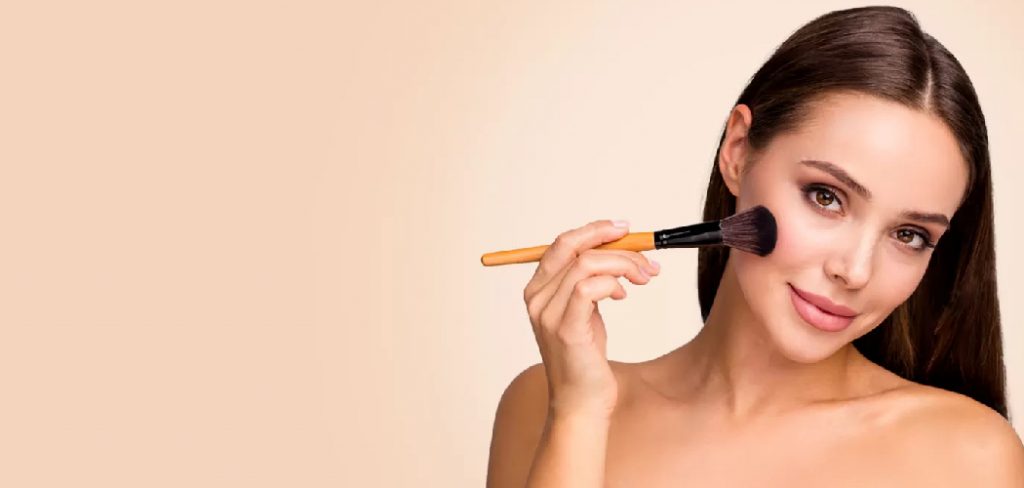
It’s important to remember that going makeup-free doesn’t mean giving up self-care or style. Instead, it opens the door to new forms of self-expression and self-acceptance. As you transition, you might discover a confidence that comes from within and a renewed appreciation for your natural appearance. In this article on how to stop wearing makeup, we’ll explore the benefits and challenges of ditching your daily makeup routine and offer some tips for making the switch.
The Benefits of Going Makeup-Free
There are many reasons why people choose to stop wearing makeup. Here are a few potential benefits you might experience:
Improved Skin Health:
Wearing makeup every day can clog pores, leading to breakouts and other skin issues. Taking a break from cosmetics gives your skin a chance to breathe and recover, resulting in a healthier complexion.
Time & Money Saved:
Let’s face it, makeup can be expensive. By not wearing it, you’re saving yourself both time and money that would have been spent on purchasing and applying products. You may also find that your morning routine becomes much simpler without the added step of putting on makeup.
Increased Confidence:
While makeup can enhance our features and make us feel more put-together, constantly relying on it to feel confident can have a negative impact on our self-esteem. Going without makeup challenges us to embrace our natural appearance and learn to love ourselves as we are.
Tools and Materials You’ll Need
- Gentle Facial Cleanser
- Moisturizer Suitable for Your Skin Type
- Sunscreen (SPF 30 or Higher)
- Exfoliating Scrub (Weekly Use)
- Lip Balm
- Eyebrow Brush or Spoolie
- Face Towels or Cotton Rounds
- Hydrating Face Masks (Optional)
- Tinted Moisturizer (for Gradual Transition, Optional)
- Journaling Notebook for Self-reflection
10 Step-By-Step Guidelines on How to Stop Wearing Makeup
Step 1: Reflect on Your Motivation
Before making any changes, take time to reflect on why you want to stop wearing makeup. Write down your reasons in a journal. Are you seeking healthier skin, more time in your mornings, or a confidence boost? Understanding your motivation will help you stay committed to your decision.
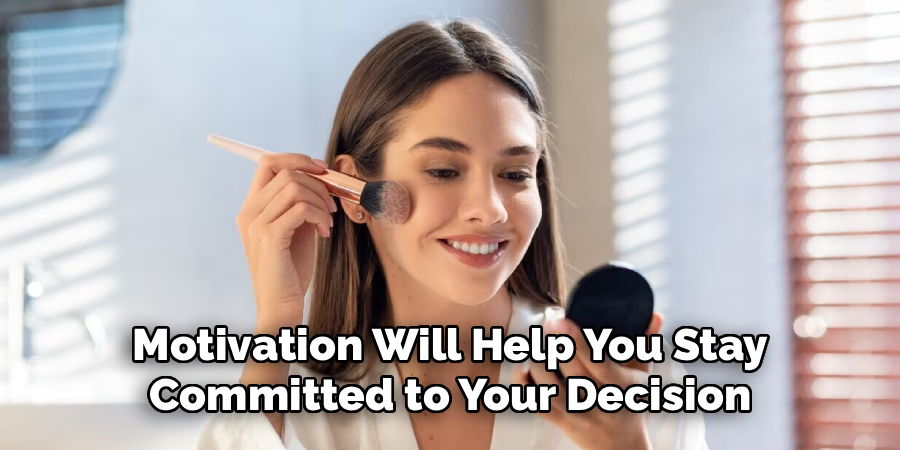
Talking about your feelings with trusted friends or family can also be helpful. They might share similar experiences or offer support. By clarifying your intentions, you’ll find it easier to remind yourself why this journey matters during challenging moments.
Step 2: Gradually Reduce Makeup Usage
Going cold turkey works for some, but a gradual reduction often feels more manageable. Start by skipping makeup on weekends or casual days. This helps your skin and self-image adjust without feeling abrupt or overwhelming.
Over time, extend makeup-free days and minimize the amount or types of makeup you use. For example, you could start wearing only mascara or tinted moisturizer instead of a full face. These small steps can ease the transition and build your confidence.
Step 3: Develop a Skincare Routine
Investing in a consistent skincare routine not only benefits your complexion but also replaces the ritual of applying makeup. Begin with a gentle cleanser, followed by moisturizer and sunscreen. Exfoliate once or twice a week to keep your skin smooth and radiant.
A good skincare routine helps you feel put together and refreshed each morning. As your skin adjusts, you may notice fewer blemishes or dry patches, boosting your willingness to go makeup-free.
Step 4: Focus on Healthy Lifestyle Habits
Healthy skin starts from within. Make sure you are eating a balanced diet, drinking plenty of water, and getting enough sleep. These habits can improve your skin’s natural glow and overall well-being.
Exercise regularly to increase blood flow and give your skin a healthy flush. Reducing stress through meditation or yoga can also help, as stress often takes a toll on your complexion.
Step 5: Embrace Your Natural Features
Take time to study and appreciate your natural face in the mirror. Notice unique features like the shape of your eyes, your smile, or your freckles. Embrace what makes you, you.
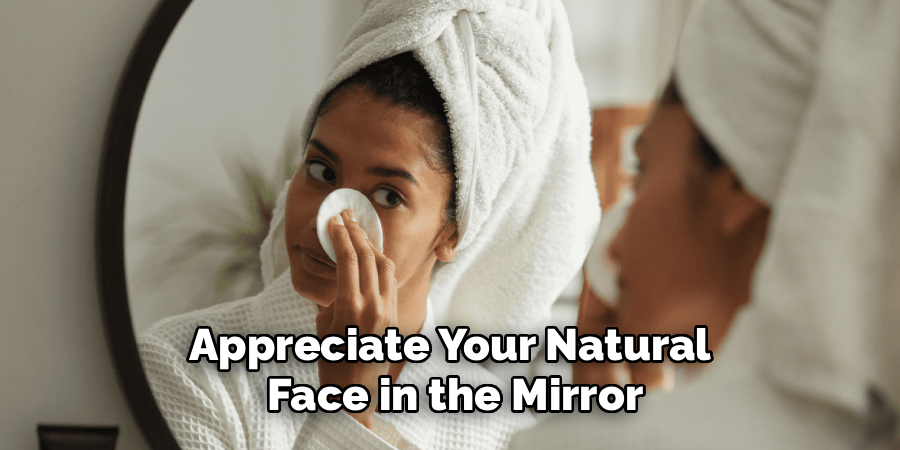
When you focus on your natural beauty, you’ll start building confidence that isn’t reliant on makeup. Celebrate small milestones, like feeling comfortable leaving the house bare-faced or receiving a compliment on your glowing skin.
Step 6: Use Alternatives for a Gentle Transition
If stopping makeup all at once feels intimidating, use alternatives like tinted moisturizers, clear brow gels, or lip balms with a hint of color. These products provide a subtle enhancement while allowing your natural skin to shine.
Such alternatives can act as a bridge between a full makeup and a bare face. Over time, you may find yourself relying on them less as your confidence grows.
Step 7: Address Any Skin Concerns
If skin issues such as acne, redness, or uneven complexion are making it hard to quit makeup, consult a dermatologist. Addressing these concerns can make you feel better about going makeup-free.
Using effective treatments and making lifestyle adjustments can lead to healthier skin. Remember, everyone’s skin is unique and improvement can take time—patience is key.
Step 8: Surround Yourself with Support
Let friends and family know about your goal. Their encouragement and understanding can make the process easier, especially on days when you might feel self-conscious.
You could even find an online community or support group of people on a similar journey. Sharing experiences and tips can boost your morale and make the transition feel less isolating.
Step 9: Practice Positive Self-Talk
The way you talk to yourself shapes your confidence. Replace negative thoughts with positive affirmations about your natural appearance. Write them down and read them each morning.
Whenever you feel doubt, remind yourself of your progress and your reasons for stopping makeup. Self-compassion and kindness go a long way toward maintaining your resolve.
Step 10: Celebrate Your Progress
Acknowledge each step you take, whether it’s a small achievement or a big milestone. Reward yourself when you reach your goals, such as going a whole week without makeup or feeling good in a social situation.
Celebrating progress keeps you motivated and reminds you how far you’ve come. Document your journey with photos or journal entries to look back and see the transformation.
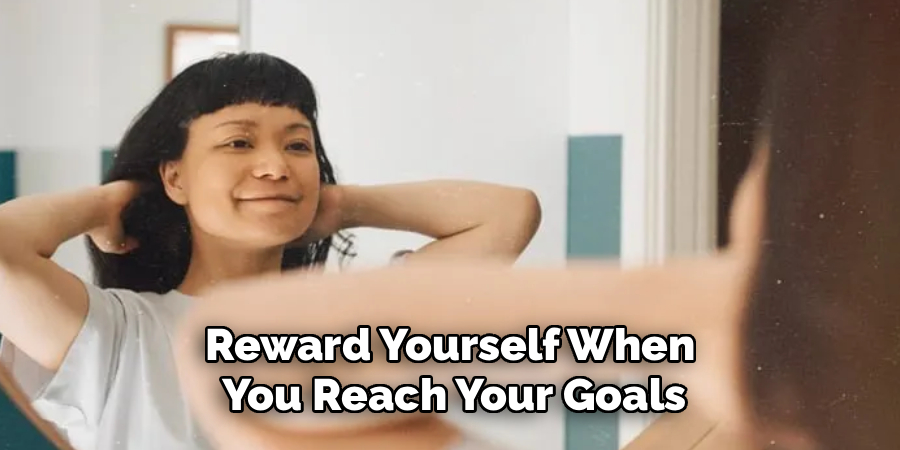
Following these steps on how to stop wearing makeup may not be easy at first, but with determination and self-compassion, you can break the habit and embrace natural beauty. Remember to take things one step at a time and never be too hard on yourself.
Additional Tips
- Give your skin time to adjust to going makeup-free. Initial breakouts or unevenness are normal as your skin balances itself.
- Wear sunscreen every day to protect your skin and keep it healthy.
- Carry moisturizing products like lip balm or facial mist to keep your face feeling fresh and hydrated.
- Be patient with yourself and don’t compare your journey to others—you’re embracing your own unique beauty.
- Remember, you can always choose to wear makeup again if you want. Going makeup-free is about personal choice and comfort.
Frequently Asked Questions
Q1: How Can I Feel Confident Without Makeup?
It’s normal to feel less confident at first, but confidence grows with practice. Focus on what you love about your natural features and remind yourself that self-worth isn’t based on appearance alone. Try using positive affirmations every day and surround yourself with supportive people who appreciate the real you. Over time, going makeup-free will feel empowering rather than daunting.
Q2: Will My Skin Improve If I Stop Wearing Makeup?
Many people notice an improvement in their skin when they stop wearing makeup, especially fewer breakouts or irritation. Without makeup, your pores can breathe, and your skin can balance itself. Developing a consistent skincare routine also supports healthier skin. Results may take a few weeks, so be patient and allow your skin to adjust.
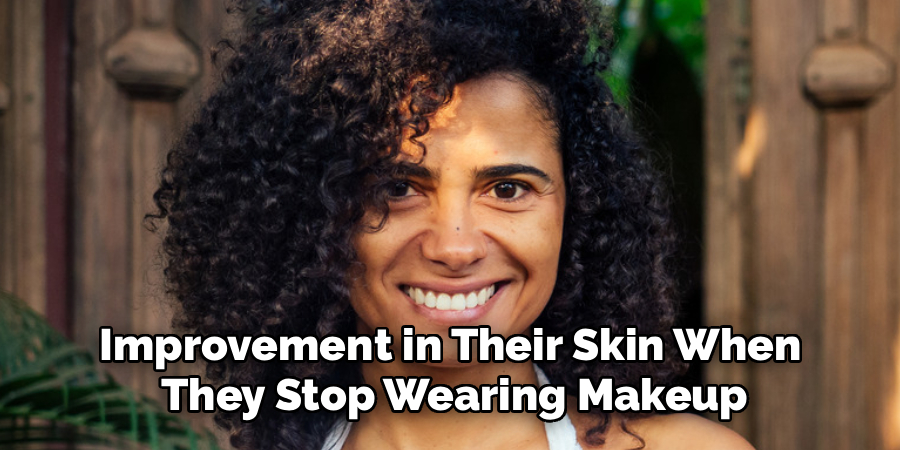
Q3: How Do I Handle Social Events Without Makeup?
Social events can feel intimidating without makeup, but planning ahead helps. Choose outfits that make you feel comfortable and highlight your natural features in ways other than makeup. Remember, confidence is attractive, and most people are focused on enjoying the event rather than scrutinizing your appearance. Practicing positive self-talk before and during social events can help ease anxiety.
Q4: What If I Miss Wearing Makeup Sometimes?
It’s completely normal to miss makeup, especially if it was a creative outlet or part of your routine. Allow yourself the freedom to wear it again if you want; there’s no right or wrong approach. The journey is about choice and comfort, not restrictions. Revisit makeup whenever you feel inspired, knowing your confidence isn’t dependent on it.
Conclusion
Choosing to stop wearing makeup is a personal and empowering journey. It’s about embracing your natural beauty and building self-confidence from within. There will be ups and downs, but each step on how to stop wearing makeup helps you discover more about yourself and what truly makes you feel good.
Remember, the goal isn’t perfection but self-acceptance. Celebrate your progress, be patient with your skin, and let your true self shine.
About the Author
Jane Hubbard is a passionate beauty expert with a wealth of experience in makeup, hair, and overall beauty techniques. After years of working as a hairdresser specialist, she followed her entrepreneurial spirit and started her own consultancy business.
Jane has always been driven by her desire to help others feel confident in their own skin, and she does this by sharing her knowledge, experiences, and practical beauty tips. Through her consultancy, she empowers individuals to embrace their unique beauty, offering tailored guidance that boosts both self-esteem and personal style.
Professional Focus
- Specializes in makeup, hairstyling, and beauty consulting.
- Provides personalized beauty advice, tips, and techniques to help individuals feel confident in their appearance.
- Dedicated to staying up-to-date with the latest industry trends and developments.
- Passionate about creating a comfortable and empowering experience for every client.
Education History
- University of Craft and Design – Bachelor of Fine Arts (BFA) in Woodworking and Furniture Design
- Woodworking Apprenticeships – Extensive hands-on training with skilled craftsmen to refine carpentry and furniture making techniques
- Online Courses & Masterclasses – Continued education in advanced woodworking techniques, design principles, and specialized tools
Expertise:
- Makeup artistry, hairstyling, and beauty consulting.
- Personalized beauty techniques to enhance confidence and self-expression.
- Educating clients on how to maintain their beauty routines at home.
